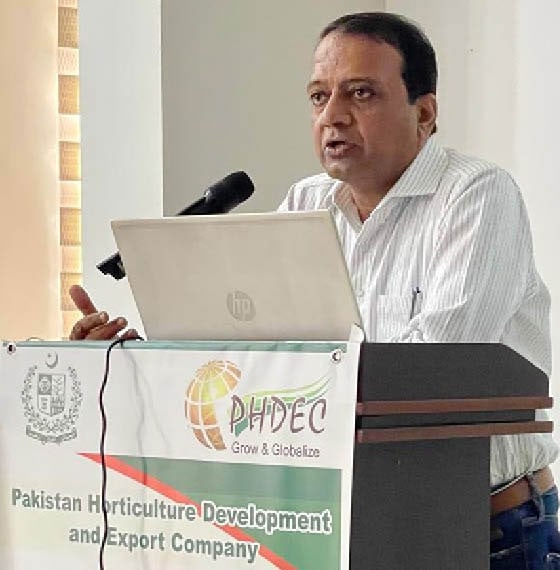The Pakistan Horticulture Development and Export Company (PHDEC), in collaboration with the Arid Zone Research Center (AZRC), successfully conducted a one-day workshop focused on improving chili production practices and addressing critical safety standards.
Held at AZRC Umerkot, Sindh, the workshop brought together chili growers, processors, and experts to discuss effective approaches to aflatoxin control, Maximum Residue Limit (MRL) compliance, and Good Agricultural Practices (GAP) in chili cultivation.
One of the key highlights of the event was an in-depth discussion on PHDEC’s supported project on “Solar Tunnel Dryers for Chilies.” This project, funded by the Export Development Fund (EDF), will establish about 35 solar tunnel drying units across major chili-producing regions in Sindh.
The initiative aims to reduce aflatoxin risks and enhance drying efficiency, offering a sustainable and cost-effective solution that meets export quality standards. The CEO, PHDEC shared detailed project plans and encouraged participants to consider solar drying as a viable alternative to traditional drying methods.
The workshop highlighted pressing concerns in the chili sector, particularly in response to growing demand for higher safety standards in both local and export markets. Experts presented insights on aflatoxin control measures, emphasizing the need for strict monitoring and improved post-harvest handling techniques to ensure compliance with international safety requirements. This aligns with PHDEC’s ongoing commitment to promoting food safety, sustainability, and high-quality agricultural exports.
Another major focus of the workshop was the Maximum Residue Limit (MRL) regulations. Experts underscored the importance of maintaining MRL compliance for pesticides to meet stringent standards in export markets. Attendees engaged in discussions on best practices in pesticide application, timely harvesting, and safe handling to avoid exceeding MRL thresholds, thereby enhancing the marketability of Pakistani chilies.
The workshop also introduced participants to Good Agricultural Practices (GAP) for chili cultivation. Presentations covered methods to improve soil health, optimize water use, and employ integrated pest management (IPM) strategies, ultimately improving yield quality and ensuring safety in production.










